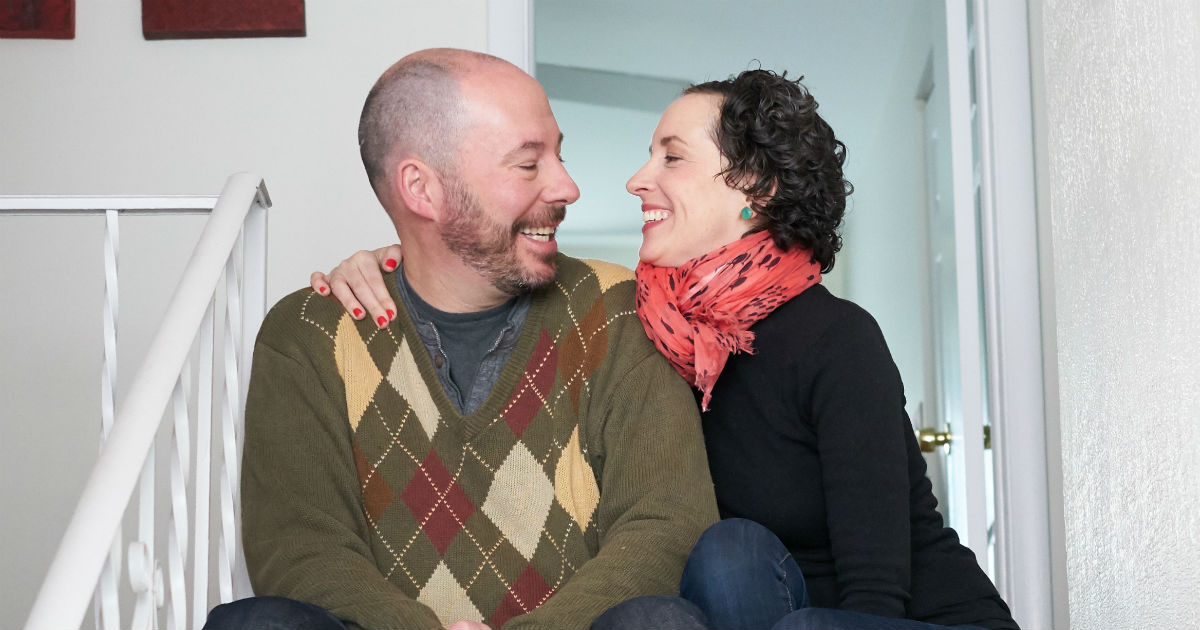
Talking about sexuality and intimacy with a spouse or partner may be uncomfortable for many of us, so much so that it’s often avoided because of the uneasy feelings it invokes. When a partner is diagnosed with cancer, it may force couples to renegotiate nearly every aspect of their relationship, including sex. And there are ways to do that that are empowering.
With a cancer diagnosis and treatment regimen, particularly with certain cancers, the topic must be broached if the patient and his or her partner want to continue to share and grow an intimate connection, explains Traci A. Owen, RN, BSN, CSC, SE, Oncology Sexual Health Specialist at Cancer Treatment Centers of America® (CTCA), Tulsa.
“Roles change within the home and the relationship, and if we think of the brain as the largest sex organ, and the brain is stressed out by all the things that are happening in the rest of life, there’s not a lot of room for sexuality to build some desire in there,” says Owen.
Genders also tend to deal with changes to their bodies and minds differently, Owen says.
For men, acknowledging a loss of sexual function or a reduced libido is often a major hurdle. With women, changes in physical appearance—such as hair loss, surgical scars, weight gain or dramatic weight loss—may make them feel less attractive or disinterested in physical interaction.
Symptoms, side effects and sex
Side effects of cancer and its treatment, such as vaginal dryness and discomfort due to a drop in estrogen levels, may make sex difficult or painful. But cancer doesn’t have to affect the vaginal area for women to experience changes in their sexual relationships. Treatments may affect mood, comfort, energy or hormone levels, each of which impacts sexuality.
Issues women commonly experienced while undergoing cancer treatment include:
- Early menopause, which can bring on hot flashes and mood swings
- Loss of libido
- Loss of sexual function or sensation
- Anxiety, depression, fear
- Negative body-image
- Fatigue
Cancer treatment often causes changes in men’s sexual function or libido as well. For example:
- Pelvic radiation and surgery for prostate cancer may impact a man’s ability to get and/or maintain an erection.
- Hormone therapy that lowers testosterone levels may impact sex drive.
- Treatments such as chemotherapy or radiation therapy may cause nausea, lethargy and/or pain and diminish a man’s interest in sex.
Other cancer-related sexual side effects may include:
- Inability to reach orgasm or for men to ejaculate
- Incontinence
- Emotional issues (e.g., anxiety, depression, guilt)
- Body-image issues
- Fatigue
When to refrain from sex
While sexual desire may ebb and flow during and after cancer treatment, there are times sex should be limited or avoided altogether. For instance:
- If you have a low white blood cell count or a suppressed immune system, because it may increase your chance of infection
- If you have mucositis (mouth sores) or sores on your genitals or anus
- If you have any bleeding from the vagina or rectum
- If you have received brachytherapy for prostate cancer, since close physical contact may increase your partner’s risk of radiation exposure
- If you are on active chemotherapy treatment, because drugs may be transmitted to your partner in semen or mucus
Consult your care team about if or when it’s safe to have sex during or after your treatment regimen.
Tips for dealing with intimacy issues
Expecting, even preparing, for changes may influence patients’ mental and emotional outlook during treatment. Discussing sexual health and other quality-of-life issues with your doctor early may help you and your partner understand potential risks to sexual health and techniques for managing them.
Redefine sex: Physical intimacy and sharing love with your partner don’t always have to lead to intercourse.
Get educated: Understand how your cancer and treatment regimen may impact your body, and why. Learning why your body may be changing may empower you to develop creative solutions.
Open the lines of communication: Talk to your health care professional about issues you may be experiencing, and perhaps even more importantly, talk to your partner. Not only will communicating help you and your partner get on the same page and fight cancer as a team, it may also clear up exaggerated misperceptions about how your partner is feeling.
“People need permission to be curious,” says Owen. “Permission to seek pleasure. Permission to learn about their body. Permission to try new things. I encourage connecting through simple touch, not sexual touch. Mutual massaging, leaving out genitals. Our erogenous zones are from the top of the head to bottom of the feet, but our society focuses on genitals and breasts. I encourage people to pull away from the pressure of intercourse and the pressure to orgasm and just feel each other’s bodies and identify new erogenous zones we may not have known about before.”

